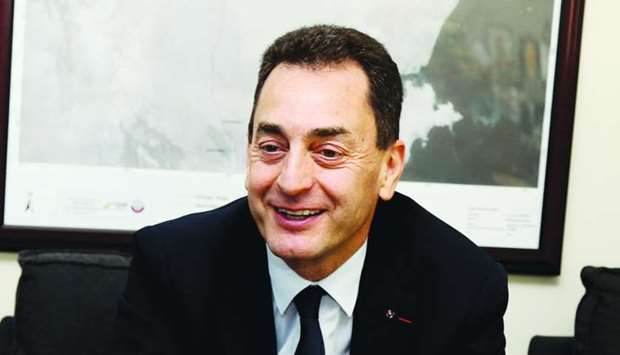The latest data from the Qatar Financial Center suggest that the bilateral trade between the two countries is estimated at around QR7bn and the Qatari investments in France have reached more than QR72.8bn.
The importance of petrodollar-rich Qatar, a strategic ally of France in the Middle East region, can be gauged from the fact that the former French president Francois Holland had held a "council of gravity" at the Elysee Palace under his supervision, and Qatar had a representative in that council.
The ‘gravitational’ principle was to attract more foreign investments from Qatar, which has steadily been growing its asset base in France through its sovereign fund and associates as well as the private sector.
The strengthening relations between Doha and Paris were corroborated by the former French envoy Eric Chevallier who once said "in a region under extreme tensions, our bilateral relation has deepened."
With a per-capita income of more than $82,000; Qatar's carefully-calibrated shopping spree in the global arena has seen prized French portfolio that includes the Paris Saint-Germain soccer team, the Printemps department store, a slew of luxury hotels and townhouses and shares of blue chip companies such as Total, Vinci, LVMH, Veolia and Lagardère.
Apart from this, private sector has also been increasingly scouting for investments in France with the latest being Mannai Corporation's equity stake purchase in Gfi Informatique, a leading French IT firm.
The domestic hotel major Katara Hospitality’s French trophy assets include InterContinental Carlton Cannes, LeRoual Monceau Raffles Paris, the Peninsula Paris and Buddha-Bar Hotel Paris.
Qatar and its private sector have substantial holdings in France's realty sector as Paris had entered into a bilateral treaty that allowed no taxes on profits foreign investors make when they sell real estate assets.
At a recent roadshow in the French capital, senior officials from QFC had a series of meetings with the business leaders, who expressed keen interest in establishing a base in Qatar as they believed in the macroeconomic fundamentals of the country.
As many as 120 French companies have established their facilities in Qatar, and a number of agreements and treaties have been signed between the two countries. The French firms include Air Liquide, Sodamco, Elan Decaux, Schneider Electric, Vinci Construction and FCB Ciment.
"Our current commercial relations have also developed significantly and the number of French companies present in Doha has increased," Chevallier had said.
Many major contracts were concluded between the two countries. Total, a global giant, is a key strategic partner in Qatar's hydrocarbons both in upstream and downstream. Its participation is in Al Khalif Field; Block 6; Al Shaheen; Qatofin; Ras Laffan Condensate Refinery; Qatargas and Qatar Petrochemical Company.
The increasing role of French firms in Qatar's non-hydrocarbon segments is evident from the operation and maintenance of the Doha metro and the tramway in Lusail by SNCF and RATP. Another French entity Suez Sevi will dredge and clean Qatar’s lagoon.
The recent Amiri decree allowing 100% foreign ownership has made Qatar more visible within the foreign direct investment radar of France whose interests in Doha are majorly in the fields of oil and gas, infrastructure, especially large constructions, in view of upcoming 2022 FIFA World Cup.
The French firms are increasingly looking at the growing opportunities in Qatar, which is still the fastest growing economy in the world. Medef International, an entity that represents the French private sector, wants to build on the very strong political relationship between France and Qatar and take the business relationship to the next level, considering that the Gulf crisis has opened up opportunities for cooperation in key sectors in Doha.
Earlier in a meeting here with Qatar Chamber vice chairman Mohammed bin Ahmed bin Tawar, French Railway Company chief executive Guillaume Pepy said "the siege is a new opportunity for businessmen to put extra efforts for strengthening national economy by boosting self-sufficiency and promoting local industry and investments.”

,Our current commercial relations have also developed significantly and the number of French companies present in Doha has increased,, Chevallier had said.
As Qatar and France near the Golden Jubilee of their diplomatic relations, the ongoing siege imposed by the quartet seems not to have any impact. The bilateral trade has grown exponentially and is expected to strengthen, especially in view of Doha opening up almost all economic sectors for further foreign investments.

